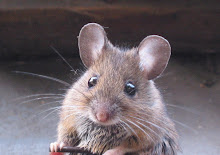
Finally, another book review! This title was on my August vacation reading list but I didn’t get around to it until our October plane ride to Utah.
I don’t usually read non-fiction. I am a fiction-person all the way - the more complicated the plot or unusual the characters’ name, the more I like it. However, I am also a dog-person and a book-person and so when I saw A Good Dog – The Story of Orson, Who Changed My Life on the 3 for 2 table, I just couldn’t help myself. Jon Katz has written no less than six books and innumerable columns about dogs. This book is about the dog that broke his heart.
Katz’s dog Orson was a border collie, adopted by Katz at the age of two after flunking out of the obedience competition circuit. Katz had always had dogs – gentle, clunky Labrador retrievers as well as intense border collies – but nothing prepared him for Orson, a complex and needy dog. All border collies are highly instinctive with a fervent drive to work; this makes them less than ideal city dogs, despite their seemingly manageable size. Border collies were bred to work, mostly to drive flocks of sheep and, in lieu of woolly minions, have been known to herd cats, other dogs and small children. When he adopted Orson, Katz knew his new project would need training to do his herding job; after many frustrating failures, he realized that Orson was too tense and excitable to be a good herder. After winning one participant’s ribbon in a beginners herding competition, Katz packed up his dogs and moved to a farm in upstate New York to give himself and Orson the peace they both needed: “…on our own farm Orson could … have all the space even a demented border collie could want.”
Orson was clearly a head-case (soon rocketing from placid to vicious at no provocation) but despite all the dog’s issues, Katz doted on Orson, and believes that Orson loved him back. The dog always stayed within inches of him, riding in the car with his head on Katz’s shoulder, lying on his feet when Katz was writing. Katz was determined to help his dog, regularly visiting a holistic vet for acupuncture treatments and warily establishing a relationship with a shamanic healer. But poor Orson spiraled down and down until he attacked three different people in separate instances, injuring two of them quite badly.
Katz knew he had three choices: give Orson away to someone else who had less contact with people than he did; keep Orson a virtual prisoner, secluded from all other people and dogs; or put the poor boy down. Although none of the victims ever asked him to do so (and, in fact, many of his friends told him not to), a heartbroken Katz made the hardest, most horrible decision a dog owner will have to make, feeling he’d failed his dear, troubled friend. Afterwards, Katz went into a deep depression for months, kept going only by his other two dogs, until he finally decided to write Orson’s story.
Katz’s writing is clear and visual, unsentimental and yet affectionate. It’s a quick read and each chapter starts with lovely black and white photographs of Katz’s dogs and other farm animals. He writes in the afterword, marveling a little bit, that the reading public had strong reactions to this book, not out of concern for the three people Orson bit, but because he put a healthy dog down. Some of the responses were outrage but more often it was sympathy and sad understanding. It must have been an extremely difficult story for Katz to tell, and he says he did the best he could for his dog, feeling “secure, if not happy, with his actions.”
A Good Dog struck very close to home for me. I’ve had to put one dog down, a golden retriever who was suffering with cancer in his foreleg, and while it was terribly sad, we had no other choice since he was in such pain. Currently, we own a dog with her own issues, having been adopted as a stray when she was around three years old. We have to manage her, making certain not to put her in situations where she’ll fail. Becky does not like other dogs, children make her nervous and she is intensely motivated by food – all things that impose restrictions on our life with her - and yet alone at home with us, she is gentle and goofy and loving.
I mentioned that I don’t usually read non-fiction at the start of this review. Well, I definitely don’t read non-fiction that makes me cry and yet there I was, finishing A Good Dog on a recent plane trip to Utah, tears pouring down my face. In fact, as I’ve been writing this review, I started crying again. I very much identify with Katz and hope that the decision he had to make is one I never will.






No comments:
Post a Comment